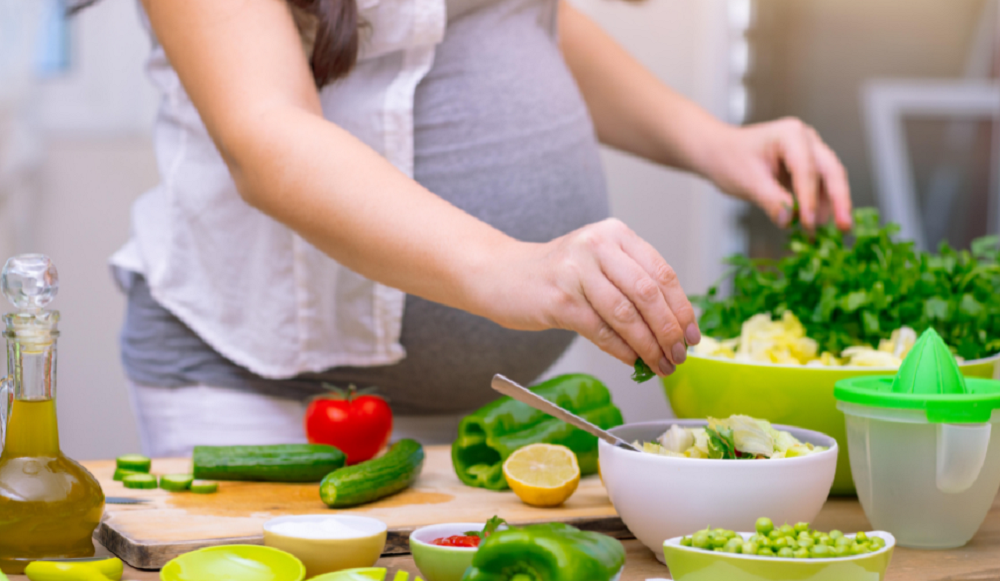Eating right during pregnancy is about feeding your body and your baby the right nutrients at the right time. From folate-rich greens to iron-packed proteins, every bite plays a part in your baby’s growth and your well-being. So, what to eat during pregnancy is very important for your health and for the life you’re about to give.
Pregnancy is a special time in your life, plays a big role in keeping you and your baby healthy. Your body needs more nutrients than usual to support your baby’s growth and to keep up your own strength and energy. Small changes in your daily meals can make a big difference. If you’re ever unsure, consult your doctor or a registered dietitian for personalized advice.
So, how do you know which foods are truly good for you and the baby? Here’s a simple guide to choosing good foods for healthy pregnancy, without confusion.
Table of Contents
ToggleNourish Your Body and Baby: Good Foods for Healthy Pregnancy
- Start with Whole, Unprocessed Foods
Avoid overly processed snacks, packaged meals, or anything with ingredients you can’t pronounce. Instead, build your meals around:
- Fresh fruits and vegetables
- Whole grains (like brown rice, oats, and quinoa)
- Lean proteins (like chicken, eggs, lentils, or tofu)
- Healthy fats (like avocado, nuts, and olive oil)
These give your body the clean fuel it needs — without the additives.
- Prioritize Folate-Rich Foods Early On
Folate (or folic acid) is key for your baby’s brain and spinal development, especially in the first trimester. Good sources include:
- Spinach, kale, and broccoli
- Lentils and black beans
- Oranges and strawberries
- Fortified cereals
These are good foods that also help reduce the risk of neural tube defects.
- Pick Iron-Rich Options for Energy
Iron helps prevent anemia, keeps your energy levels up, and supports your growing baby. Add iron-packed foods such as:
- Lean red meat or poultry
- Eggs
- Leafy greens
- Beans and lentils
Pair these with vitamin C-rich foods (like citrus or bell peppers) to help your body absorb the iron better.
- Don’t Skip Protein – It Builds Your Baby’s Tissues
Protein is essential for your baby’s growth, especially during the second and third trimesters. Include a source of protein in every meal:
- Dairy products like yogurt or cheese
- Eggs
- Fish (low in mercury like salmon or sardines)
- Nuts, seeds, or nut butters
- Hydrate and Choose Smart Beverages
Water is just as important as food. Aim for 8-10 glasses a day. You can also include:
- Coconut water (natural electrolytes)
- Milk (calcium and vitamin D)
- Herbal teas (like ginger or peppermint – but check with your doctor first)
Avoid sugary drinks, too much caffeine, and definitely skip alcohol.
- Calcium & Vitamin D – Strong Bones for Both of You
Pregnancy increases your need for calcium and vitamin D. Great sources include:
- Dairy products (milk, yogurt, cheese)
- Leafy greens like bok choy or kale
- Fortified plant-based milks
- Eggs and fatty fish
- Watch Out for Foods to Avoid

While many foods are great, some are risky during pregnancy.
Avoid:
- Raw or undercooked meat, fish, and eggs
- Unpasteurized dairy or juices
- High-mercury fish (like swordfish or king mackerel)
- Deli meats unless heated properly
- Excess caffeine (stick to under 200 mg/day)
Being mindful of these helps keep both you and baby safe.
- Eat Small, Balanced Meals throughout the Day
Nausea, heartburn, or fatigue may affect your appetite. Instead of 3 big meals, try eating 5-6 small meals with:
- A mix of carbs, protein, and fats
- Fiber-rich foods to reduce constipation
- Snacks like nuts, boiled eggs, or fruit with yogurt
Even small changes can make a big difference.
Final Thoughts
Choosing the good foods for healthy pregnancy doesn’t need to be complicated. Focus on real, fresh, nutrient-rich ingredients. Listen to your body. And when in doubt, consult your doctor or a registered dietitian. A healthy pregnancy starts on your plate. So make every bite count — for you and the little life growing inside you.


